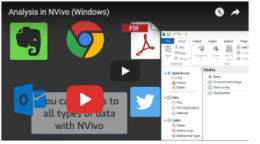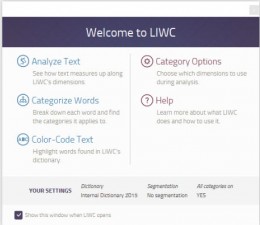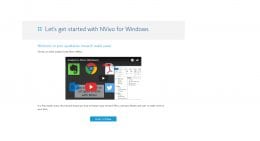
“Advanced NVivo” is a follow-up presentation from the “Introduction to NVivo” offered earlier this term. This training will be held 1:30-3:30 p.m. Friday, Dec. 3, online via Zoom.
This presentation will address the following:
- Any extant questions from the basic introduction of NVivo 12 Plus / NVivo
- How to set up qualitative data to be explored and queried
- How to use the software on interview, survey, focus group, and similar data
- How to query the collected data in an NVivo project (word frequency counts, text searches, matrix coding queries, matrix queries, proximity text searches, and other forms of text parsing)
- How to create data visualizations (word trees, word clouds, dendrograms, ring lattice graphs, sociograms, and others) (for analysis and presentations)
- How to conduct four types of auto-coding (by extracted themes and subthemes, by sentiment analysis, by structured data, and by supervised machine learning based on existing human coding)
- How to set up a qualitative cross-tabulation analysis
- How to output a basic report (including a custom codebook)
The presenter will be using the Windows version of the software.
Caveat
K-State does not have a site license for NVivo. Student licenses are available by subscription for NVivo Windows or the Mac (which has fewer capabilities/features). The subscriptions are for 12 month periods and available for about $99 or so a year.
QSR International trainings
QSR International offers video tutorials and both free and for-pay events.
An additional reference
Those who have already started using NVivo may want to refer to “Using NVivo: An Unofficial and Unauthorized Primer,” which is an e-book built on the Scalar platform that highlights various features of the tool.
Questions
Registration is not required. However, K-Staters who want a formal record of their attendance may register via HRIS…or sign up in-person at the online event (and they’ll be credited shortly after the event).
If there are questions, please email shalin@k-state.edu or call 785-532-5262. Thank you for your interest. All are welcome.


